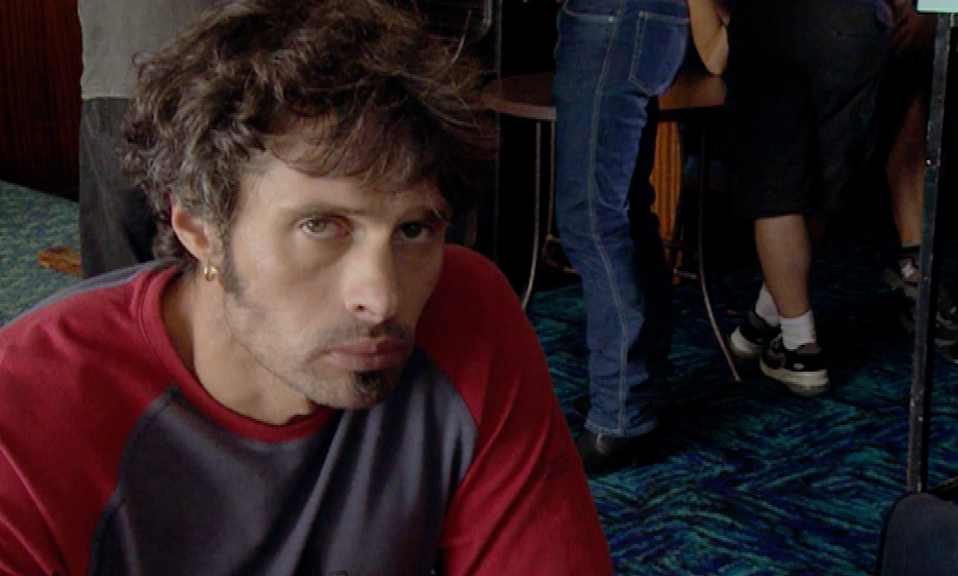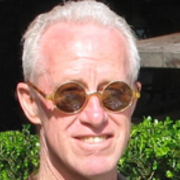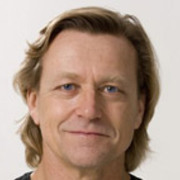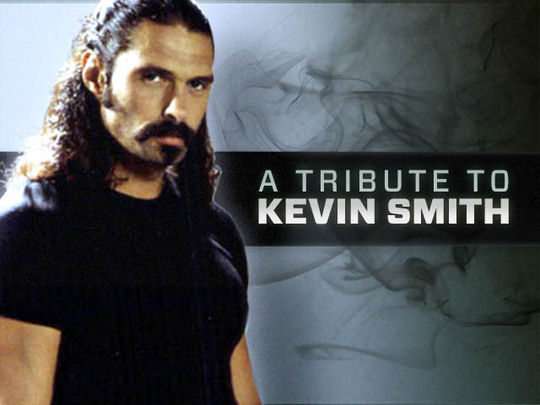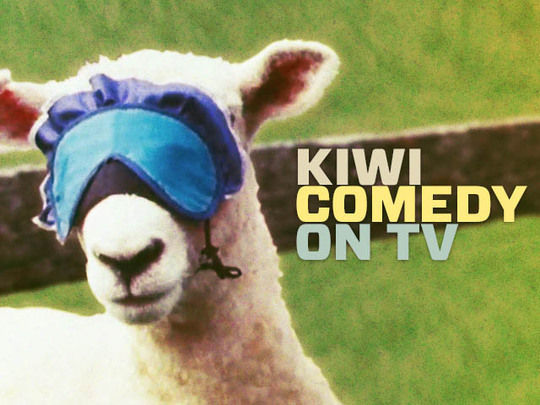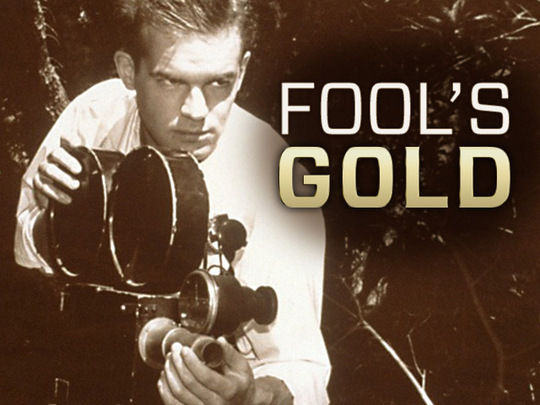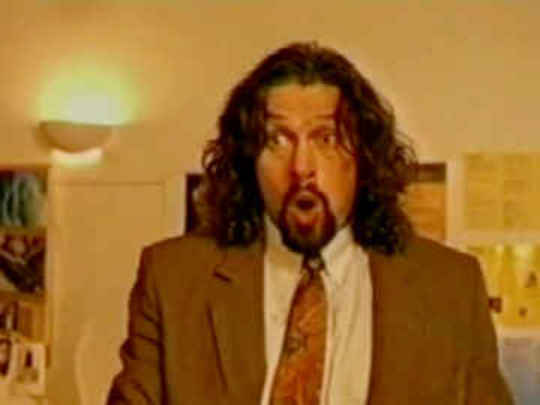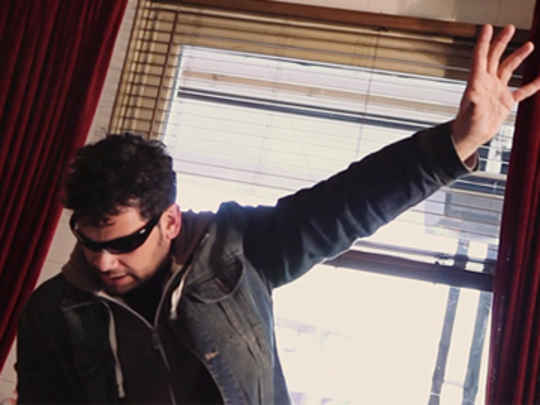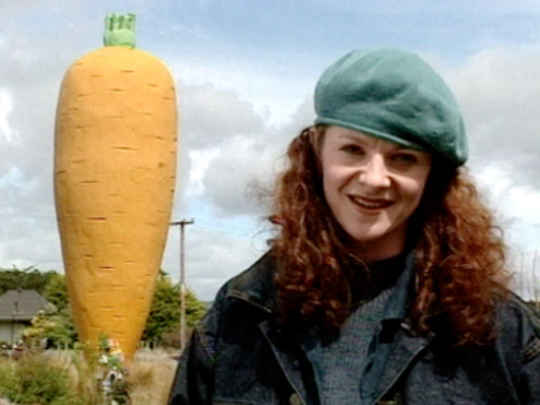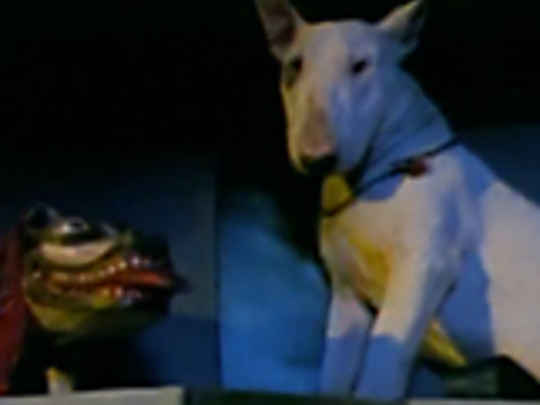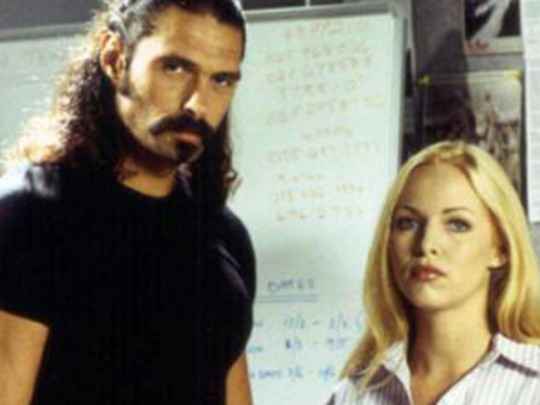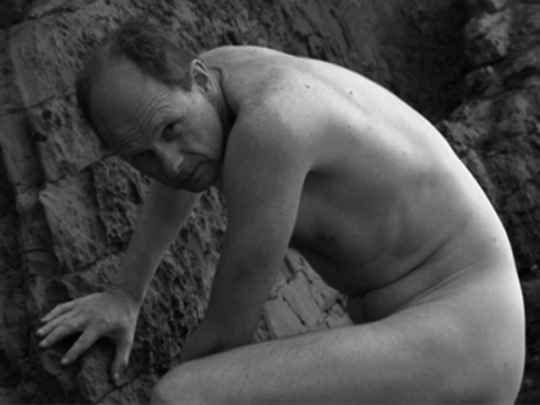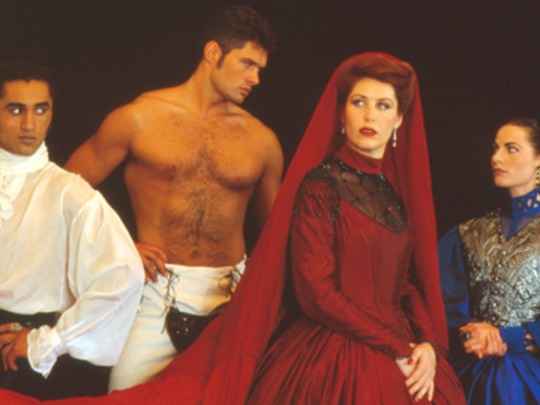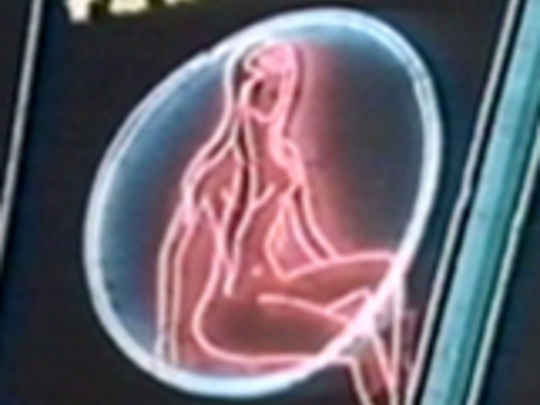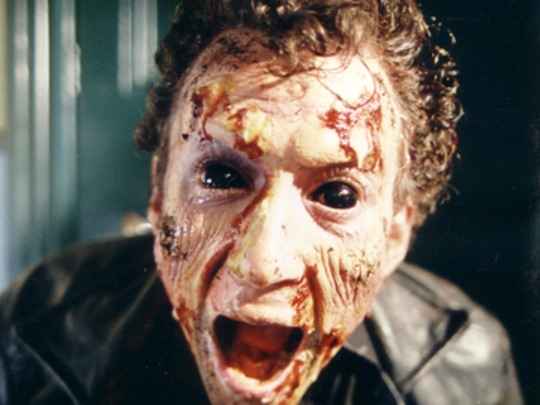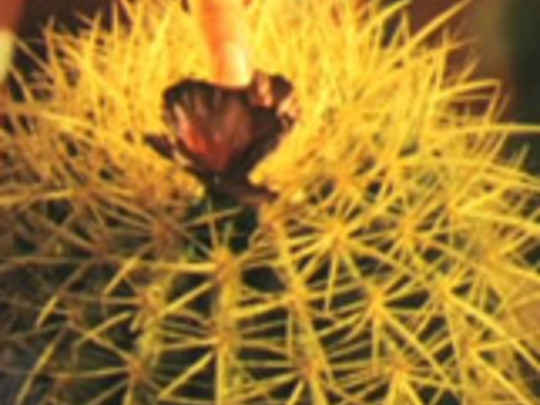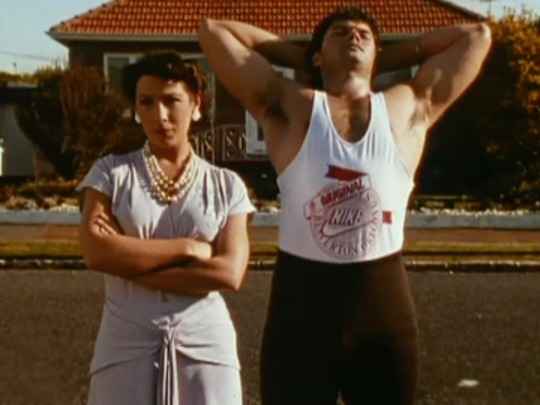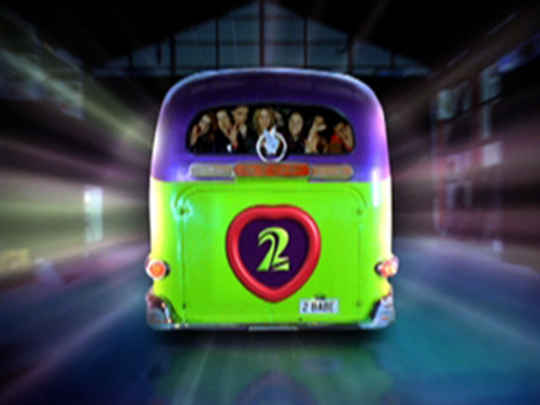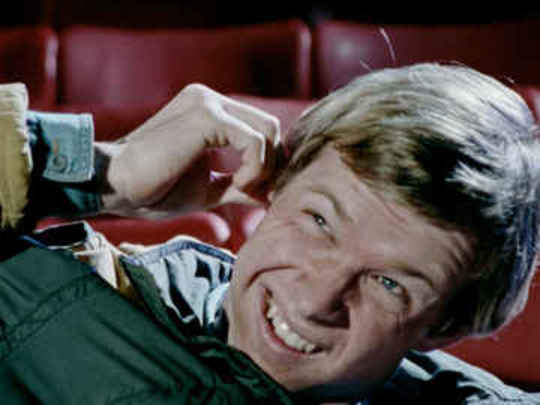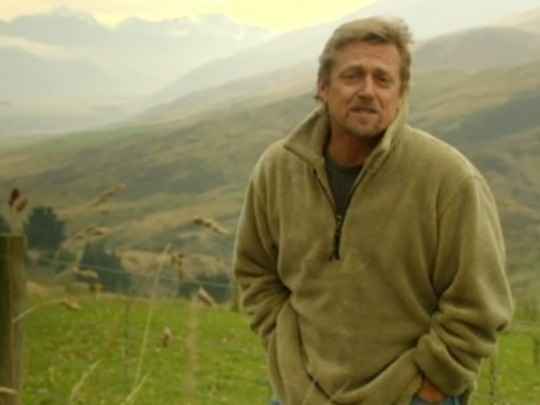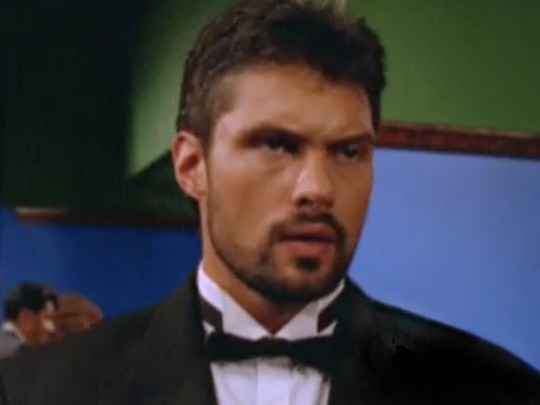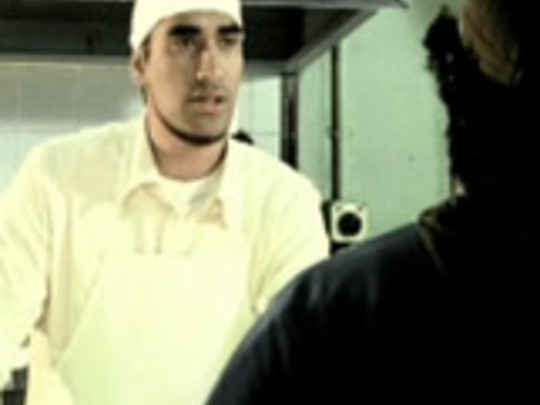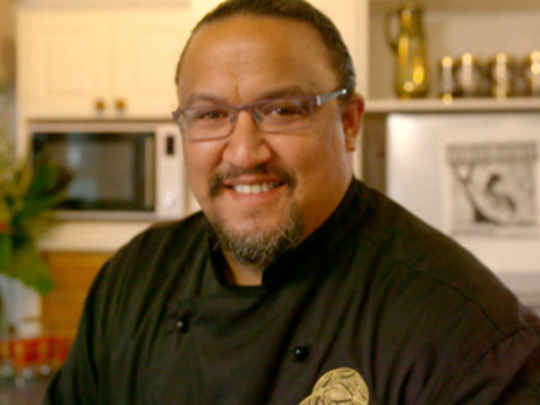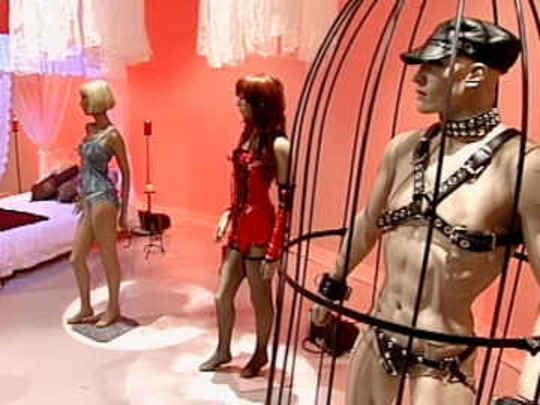Love Mussel
Television (Full Length) – 2001
This title has two backgrounds:
A Perspective
Love Mussel is a wide-ranging parody whose targets include its own medium— television — and its star, Kevin Smith. He appears as himself, a celebrity actor, hired to front an investigative, ‘feel-good' documentary about a shellfish with Viagra-like properties. Ironies abound, starting with the title, in relation to Smith's perceived swarthy reputation. As director Michael Hurst— in a cameo as a TV executive— quips, "You'll get your shirt off, won't ya?" From their roles in Hercules and Xena: Warrior Princess, both Smith and Hurst were regarded by fans as 'hunks'. And no, Smith doesn't.

Kevin Smith in Love Mussel.
The only other 'real-life' characters are Prime Minister Jenny Shipley and newsreader John Campbell. Shipley is the unwitting object of Smith's unbridled lust. He is 'undone' by the sight of her on TV while he samples geoduck, the musky mollusk. An unlikely coupling slyly fostered through the medium: television is both the source and butt of the comedy.
Commissioned for a third series of one-hour Sunday dramas for TV3, initiated by NZ On Air and the NZ Film Commission, Love Mussel first aired on 18 July 2001. it was originally written for an earlier series. Writer Stephen Sinclair and producer Sue Rogers proposed it as Sam Neill's dramatic directorial debut. Neill was to play himself as the hapless documentary investigator. Whether his renowned modesty held him back is not known, but the project lapsed.

Vicky Haughton and Geoff Snell as the unlucky Noeline and Bob.
Sinclair's association with Peter Jackson — he co-wrote two of Jackson's more outrageous comedies (Braindead and Meet the Feebles) — suggests Forgotten Silver (1995) as a possible influence. Love Mussel does not pursue the mockumentary as far — it does not set out to be taken as fact — although Smith's persona complicates a conventional suspension of disbelief.
The satire runs in well worn tracks: Kiwi rustics, Māori sovereignty, masculine inadequacy, dominating women, town and country, and liberal recourse to penis jokes. Old jokes are often good jokes, and The Listener cited Love Mussel as one of the best comedy-dramas of 2001.

Jackie van Beek as fanatical protester Fiona Mathieson.
As the story gets blacker, Smith is subjected to a form of aversion therapy applied by a doctor played by Jennifer Ward-Lealand. Smith's prospects for love are little better than when the two last paired, in 1993 movie Desperate Remedies. Love Mussel's subversion of drama — and documentary's claims to present 'reality' — reflect an achievement in Smith's performance.
In its political and social themes, Love Mussel exposes masculine insecurity. From his producer onwards, Smith is beset by women setting his agenda. In spite of his piratical and raffish good looks, his hunk is at the mercy of others. Like an actor really. But Smith projects a charming vulnerability which avoids occupying either side of this comedy's gender divide. He turns the parody back on itself, and makes the love mussel his own.
- Producer Owen Hughes is head of Frame Up Films, the production company behind Love Mussel.
